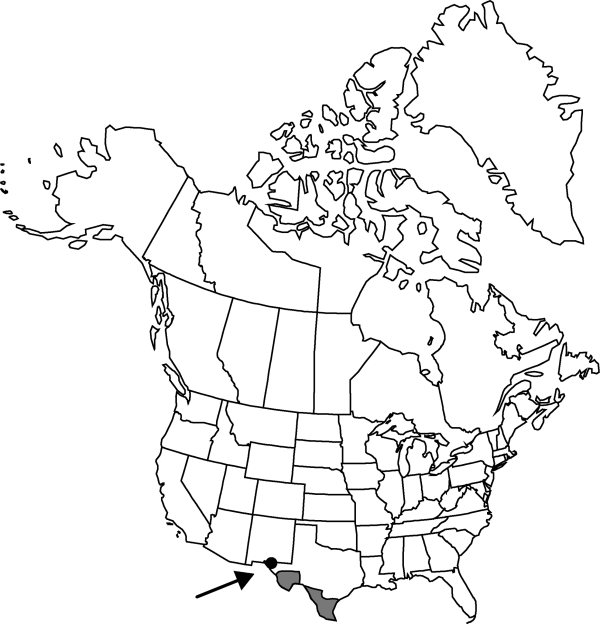Ferocactus hamatacanthus
Cact. 3: 144. 1922.
Stems erect, spheric to short cylindric, 10–63 × 7.5–30 cm; ribs 10–17, crenate or sharply notched to undulate or deeply sinuate, hence ribs prominent to poorly defined, or stem sometimes tuberculate. Spines 12–16(–28) per areole, pinkish brown and/or straw colored, often imparting appearance of dried grass clump, smallest spines per areole slender, sometimes bristlelike, less than 1 mm diam.; central spines 4(–8) per areole, terete to strongly flattened, apically curved or strongly hooked, very flexible, sometimes almost papery, smooth to weakly annulate, principal central spine (40–)60–165 × (0.5–)1–3 mm. Flowers yellow inside and out, 5.5–8(–10) × 6.5–9.5 cm; inner tepals bright lemon yellow, very glossy; stigma lobes pale yellow. Fruits indehiscent, green or maroon, 20–50 × 10–30 mm, thin walled, soft, juicy, locule filled with very juicy pulp and seeds. Seeds 1–1.6 mm, pitted.
Distribution

sw United States, n Mexico.
Discussion
Varieties 2 (2 in the flora).
Selected References
None.
Key
| 1 | Principal central spine angled or terete, hard, narrow, mostly 1-1.5 mm wide; stigma lobes 11-14; seeds 1.4-1.6 mm; mostly west of Pecos River in Chihuahuan desert scrub | Ferocactus hamatacanthus var. hamatacant |
| 1 | Principal central spine flattened, sometimes almost papery, broad, 1.3-3 mm wide; stigma lobes 8-10; seeds 1 mm; mostly east of Pecos River in Tamaulipan thorn scrub | Ferocactus hamatacanthus var. sinuatus |